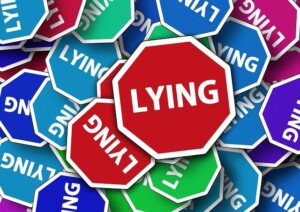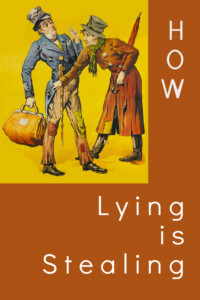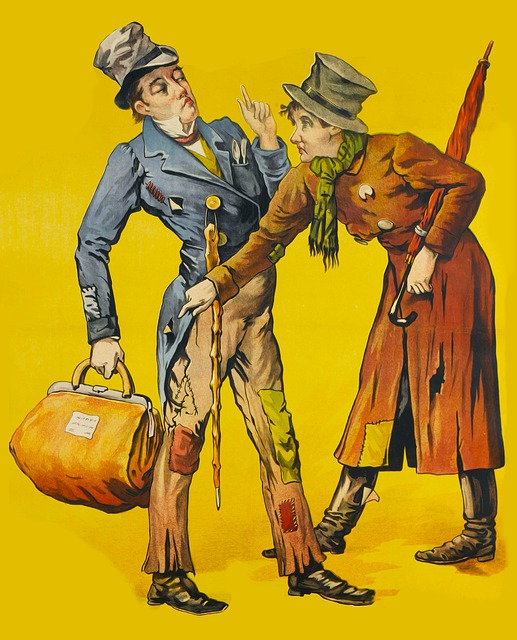How Lying is Stealing
 Is lying really as bad as stealing?
Is lying really as bad as stealing?
In the Christian world, I venture to say that most of us consider stealing “worse” than lying. A sin is a sin, sure, we say. Does lying seem much smaller to you than stealing? It did to me until I read the verses in Ephesians:
Therefore, having put away falsehood, let each one of you speak the truth with his neighbor, for we are members one of another. Be angry and do not sin; do not let the sun go down on your anger, 27 and give no opportunity to the devil. 28 Let the thief no longer steal, but rather let him labor, doing honest work with his own hands, so that he may have something to share with anyone in need. 29 Let no corrupting talk come out of your mouths, but only such as is good for building up, as fits the occasion, that it may give grace to those who hear.
I find it interesting that the part about stealing is sandwiched right between the verses on lying. Both are wrong – and both affect others, not to mention how they affect ourselves.
 What is truth?
What is truth?
How do we “speak truth”? We do it, not only by what we say, but by how we say it. Withholding the true part of a story so the person we are talking about is portrayed as the one in the wrong is lying, and therefore stealing a person’s rightful reputation. This is why lying is stealing.
When I lie about someone, I am “stealing” truth about them or from them – or both. I’m withholding truth. When I withhold something from you that is your responsibility or right to know, I am stealing from you.
Harboring is another way to steal. Many times we hoard falsehoods. Instead of releasing truth that belongs to others, we hoard facts for ourselves. We hoard ill will instead of releasing untruths that we’ve hoarded to keep our bitterness quota filled.
The problem with lying is that when we tell ourselves something often enough, or hear it often enough, we come to believe it as truth. It’s a subtle thing, isn’t it? We shade things just a little and then keep adding to the shades of untruth. Before we know it, we have come to believe it as truth.
 What to do about lying
What to do about lying
Recognize the temptation as it is. It’s real, for every one of us. Admit that lying is stealing. Next time you’re tempted to shade the truth, to embellish what happened, to sidestep a question, decide if you really want to be guilty of theft. Do you really want to live with wrong portrayals in order to “protect” your image or make sure someone else doesn’t get a fair portrayal?
Consider your motive for lying, then acknowledge the motive and the lie. Admit that lying is actually stealing truth. Determine to speak truth, and you’ll experience the freedom of honesty and integrity.








Amen.
My sociopathic husband in his mid-50s, defiant, impulsive, risk-taking, and thrill-seeking his entire life, apparently, needed to read this, and I did, too, to understand why lying repulses me so.
THANK YOU!